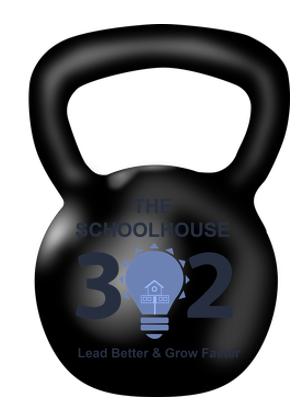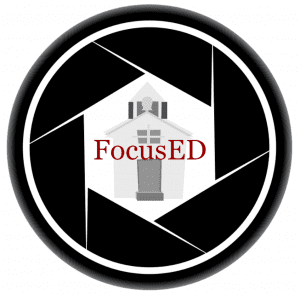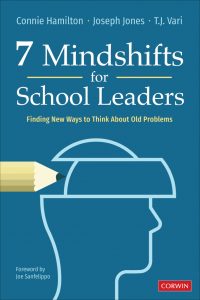
The 2 Most Important Aspects of School Accountability that Every School Leader Should Know
Accountability in Schools
If you want to hear a great sigh in any faculty meeting, start it off by talking about your systems for accountability. It doesn’t matter if you’re addressing standardized tests or the teacher evaluation systems, people liken any conversation on accountability to that of medieval torture. This isn’t because educators don’t want to be held accountable; that’s the furthest from the truth. Rather, we have found that teachers and school leaders see a disconnect with how policies play out in schools and what is actually happening in their classrooms.
Certain aspects of accountability, like state assessments, also require a ton of additional work that many teachers and school leaders believe takes away from other important work. Not necessarily more important, but certainly just as important. If you’ve sat in an office late into the evening double counting every completed test packet, filling out security documents, and cross-checking attendance lists, then you know what we mean.
Ironically, accountability can usurp the autonomy and the independence of school teachers and school leaders. Although accountability works to improve schools, offer much needed support, and even provide funding in needs-based scenarios, the top-down approach often comes in conflict with other initiatives that school leaders may feel are better suited to support student learning than testing and evaluation.
It may sound like we dislike or discredit accountability systems in schools. Candidly, just the opposite. Joe was a Director of Assessment and Accountability for 6 years with a true belief that accountability can drive change in the right direction; T.J. served for many years on a committee to review the evaluation system for teachers and school leaders. We both feel that accountability is at the heart of achievement, regardless of the industry or person. However, if we ignore how people feel about accountability, or at least some forms of it, our school improvement efforts, including accountability, will fall short.
Rethinking School Accountability with Two Primary Tools for School Leaders
The truth is that great school leaders take ownership of accountability regardless of the system in which they work. They certainly use the system to the best of their ability, but they also adapt systems and create school-based accountability measures that the staff can see as valuable and necessary for progress. There are two areas that great school leaders place their attention when it comes to accountability, and we’ve found them to be universal among the school leaders we interview, coach, and learn from. Using these two methods of accountability shifts the thinking about it from one of skepticism to that of progress.
First, every great school leader focuses on clear and measurable goals. They create and communicate school level goals for both the school as a whole and each individual person and department within it. Second, every great school leader puts a ton of emphasis on a culture of feedback. They anchor feedback using the school and individual goals that are set in both formal and informal settings. Let’s dig into this further to both tools in terms of how they can be used effectively by school leaders.
Tool #1: Clear and Measurable Goals for School Accountability
School accountability should be representative of the many facets of schooling that drive whether or not students are learning. Take, for example, buildings and grounds as a department. Great school leaders understand that the way the school looks, smells, and feels has an impact on how well teachers can operate and what students believe about their school. That also means that great school leaders set clear and measurable goals for the look and function of the facilities. As such, each function below would have specific goals associated with it and key metrics to determine how well the department or service is functioning.
Figure 1: Key Functions of a School
| Key Functions of a School |
| Assessment |
| Athletics/Extra Curricular |
| Building and Grounds/Facilities |
| Career and Technical Education |
| Community Services |
| Community Relations |
| Curriculum |
| Federal/State Policies |
| Finances |
| Instruction |
| Nutritional Services |
| Personnel |
| School Climate |
| Special Education |
| Student Support |
| Technology |
| Transportation |
Even though you need metrics for each area, we want to tease out a curriculum, instruction, and assessment to speak directly to teaching and learning and the clear and measurable goals that all school leaders should set to determine the viability and effectiveness of our classroom practices.
School Leadership Learning Prompt #1:
 Consider the following reflection prompts:
Consider the following reflection prompts:
Which key metrics should be associated with each of the 17 functions in Figure 1?
Setting Clear and Measurable Goals Using Internal Assessment Data
If you take a look at the 17 functions, you’ll notice we did not lump curriculum, instruction, and assessment altogether. Although all three work together to make up our guaranteed and viable program of work, they need to be viewed interrelated but independently. Since these three are at the crux of student achievement, let’s look at them through our accountability lens. Curriculum and instruction receive a lot of attention, but assessment has yet to be given the consideration it deserves. That’s for another blog post, though.
Once a viable curriculum is established, it must look and sound a certain way in the classroom. This begins with the teachers fully understanding it–that it is being implemented with fidelity and that there is a communication mechanism in place to identify challenges along the way. One thing we know about the curriculum is that it does not remain stagnant. It’s constantly under review.
The same should also be true of assessments. Assessments should be designed to inform teachers about student progress throughout lessons and units. Formative assessments, those designed to inform the teacher about progress, should be used frequently and intentionally. Summative assessments should be implemented as ways to see if students understand the concepts fully at the end of a unit. These assessments should be aligned to standards that are tested within the larger context of state standardized tests and national assessments, like the SAT, ACT, and AP exams.
This is the place where schools have the total power and authority to set goals for the school and for individual departments within the school. We often miss the mark, though, when it comes to goals, setting them regarding the accountability measure–standardized tests–rather than at the curriculum level with internal summative assessment data. The internal measures always mean more to the teachers anyway, which doesn’t bring the same level of skepticism and ambiguity that state- and district-level accountability does. Schools that have this level of clear and measurable goals not only see greater accountability for staff, they achieve at a faster rate and staff are more closely connected to the vision of the school leader. It also allows for our feedback to be anchored in something tangible, which is the second more important accountability tool that we have as school leaders.
School Leadership Learning Prompt #2:
 Consider the following reflection prompts:
Consider the following reflection prompts:
Which summative assessments do we have that can be used to write clear and measurable goals for our school?
Tool #2: Formal and Informal Feedback for School Accountability
School accountability is grounded in the candid and compassionate conversations that we have with one another about the work that we’re doing. When feedback is at the heart of the culture, we drive each other to get better faster. And this is also the basis for trust, which is often counterintuitive for school leaders. The bottom line is that formal and informal feedback cycles and models for giving and receiving feedback are what hold teachers and leaders accountable in schools, not outside measures of achievement that are typically implemented using a top-down approach.
Consider a culture of complete candor where everyone says what they think, ready to debate using research and evidence to back their claims. In this type of culture, people expect to be challenged by others. The unfortunate truth is that too many schools don’t have expectations of feedback toward change and accountability but, instead, accept the status quo. Even the ones that are set up for informal and formal feedback conversations, often suffer from school leaders and other staff who simply hold back.
School Leadership Learning Prompt #3:
 Consider the following reflection prompts:
Consider the following reflection prompts:
Which meetings, PLCs, informal visits to classrooms, etc. are already in place where we can improve candor so that staff know when they’re being praised and when they need to improve practice?
Using Specific Praise and Corrective Action to Help Teachers Grow Professionally
There are three forms of feedback that matter most in schools. The first is praise, which is still an untapped resource for leaders despite its effectiveness for building morale by celebrating success. We know that over 70% of leaders are skeptical about how, when, and why to use praise, and it’s a form of feedback that garners immediate and tangible results. Praise instills both pride and the desire to repeat behaviors; a social phenomenon that every leader should want to take advantage of. When leaders use praise well, it’s also a retention strategy. Here’s a model we developed based on research in social and behavioral psychology.
The second feedback strategy that can be used informally and formally is what feedback gurus call “corrective action.” Effective corrective action (CA) provides sufficient details so that the receivers of CA know exactly how to improve practice and feel empowered to do so. These range from minor tweaks that people should make to their practice to replacement strategies in terms of our expectation that someone will try something that they’ve likely never done before. High accountability schools demonstrate a commitment to giving feedback in every direction to improve teacher (and other staff) effectiveness. This comes from coaches, peers, supervisors, and others, all intended to make adjustments for continuous improvement.
The final, and often overlooked, method of accountability in schools when it comes to feedback is the use of professional dialogue. Leaders who are adept at asking questions create a learning culture that is inquisitive and thought provoking. This is not to say that we use questions to get people to reflect about what they should be doing differently or that we bait people into believing that they did something wrong. We’ve seen models of questioning techniques that lure teachers into thinking something that the leader already knows to be true. That type of manipulation always backfires. Rather, we’re proposing a culture of accountability that supports thinking as everyone learns to question each other about the things that we don’t see, the aspects of our work–including thought processes–that aren’t visible.
Measuring Accountability in Schools
Creating a culture of accountability requires that we measure how well we hold people accountable as we’re trying to implement the systems intended to do so. That’s why REPSS has an entire section dedicated just to accountability, and all of the questions are about clear and measurable goals as well as the feedback cycles that we use in our schools.


Reputable, Effective, Perception Survey for Schools
Accountability (REPSS)
- My supervisor holds everyone to the same level of accountability for the work.
- My supervisor/administrator communicates clear goals for me.
- My supervisor/administrator communicates measurable goals for me.
- The principal communicates clear goals for the school.
- The principal communicates measurable goals for the school.
- I receive feedback on my performance each time I am observed formally.
- I receive feedback on my performance each time I am observed informally (e.g. walkthroughs).
- The feedback I receive includes specific praise (e.g. praise is aligned to our instructional focus).
- The feedback I receive includes sufficient detail so that I can improve my performance (e.g. correct feedback is clear about the adjustments I need to make to my instruction).
- The feedback I receive helps me grow professionally.
As always, let us know what you think of this with a like, a follow, or a comment. Find us on Twitter, YouTube, iTunes, Facebook, & SoundCloud. And, again, if you want one simple model for leading better and growing faster per month, follow this blog by entering your email at the top right of the screen.
TheSchoolHouse302 is about getting to simple by maximizing effective research-based strategies that empower individuals to lead better and grow faster.
This blog post was brought to you by GhostBed, a family-owned business of sleep experts with 20+ years of experience. With 30K+ 5-star reviews, you can’t go wrong with GhostBed. Their mattresses are handcrafted, and they come with a 101-night-at-home-sleep trial. For a limited time, you can get 30% by using our code — SH302 — at checkout. And, even if you tell someone about GhostBed, you can earn a $100 referral reward. Go to Ghostbed.com today and use SH302 at checkout.







 7 Mindshifts for School Leaders: Finding New Ways to Think About Old Problems.
7 Mindshifts for School Leaders: Finding New Ways to Think About Old Problems. 


